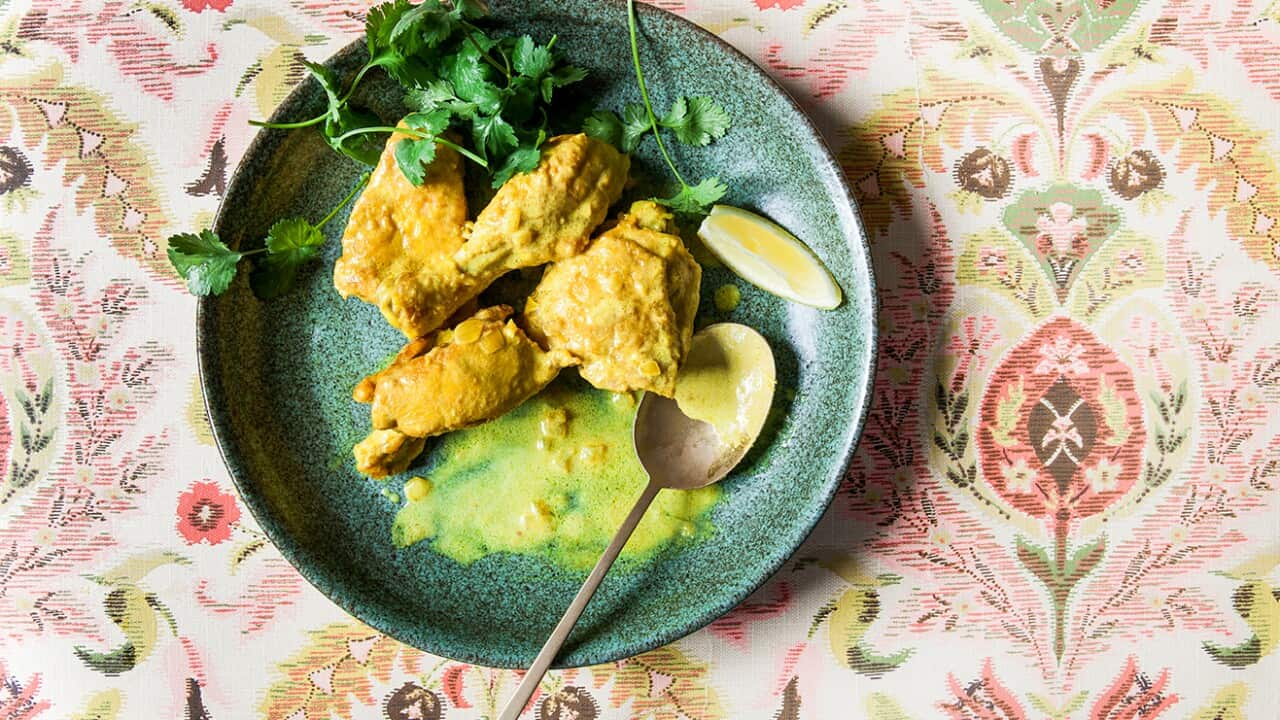At the time of the Soviet-Afghan War of the 1980s, Zelmai Ayubi was a young law student in Afghanistan, and his wife Farida was a primary teacher who also worked in a Kabul restaurant. They could see no future for their four young daughters in the war-torn country, and Farida had always dreamed of coming to Australia. Thanks to a relative who sponsored them, they were able to migrate to Australia in 1987.
Farida had learned the secrets of cooking at home as a small child, watching the preparation of delicate rice dishes, traditional dumplings and unique spice blends. She held onto her hope that one day she could open a restaurant.
The birth of Parwana
Flash forward to 2009. This family of strong women (with another daughter born in Australia) decided to launch their restaurant, , in Adelaide. It was an immediate success, no doubt because of the authenticity of the food and the service. Farida says, “I cook from my heart. I never change it to the Australian way – this is traditional Afghan food.”
The Ayubi family believes that even loss and suffering, which has happened to their country, can forge beauty and generosity. They welcome guests at their restaurant as if it were their home.

Clockwise from back left Fatema Ayubi, Zelmai Ayubi, Sayed Ayaz Ashna, Farida Ayubi and Raihanah Ayubi at Parwana; and a bowl of sabzi, an Afghan spinach and chilli dish. Source: John Laurie
The food
Parwana serves traditional Afghan rice dishes, grilled and slow-cooked meats, and a signature eggplant dish (banjaan borani) to die for. Farida also whips up wonderful steamed dumplings (mantu) stuffed with onion and carrot and topped with a lamb mince sauce and garlic yoghurt. “It’s very gentle flavours, very aromatic, very warming soul food,” says their first-born daughter, Fatema.
Giving back
The Ayubis are Muslim, and see profiting from alcohol is inappropriate. So they made an early decision to make Parwana a BYO restaurant, and to use the corkage fees to help others. Their Afghan culture also stresses the importance of generosity, of giving back to others when you have achieved success. Zelmai, who feels this urge for social justice strongly, says, “We are blessed – we must help others.” But just donating the money to charity didn’t seem enough to them. So instead for five years, every Saturday morning, Farida cooked food for about one hundred people and gave it to the Salvation Army to feed homeless people in the city. She still does it once a fortnight.
But just donating the money to charity didn’t seem enough to them. So instead for five years, every Saturday morning, Farida cooked food for about one hundred people and gave it to the Salvation Army to feed homeless people in the city. She still does it once a fortnight.

Fatema making traditional Afghan dumplings at Parwarna. Source: John Laurie
The next gen
“My mum’s passed her love of cooking on to us,” says Fatema.
The children and grandchildren of Zelmai and Farida have started the second chapter of their food story. After undertaking a two-year patisserie course, Fatema launched a sweets and dessert business in 2013, . The flavours of cardamom, rose, cinnamon and pistachio are infused in culturally inspired cakes, biscuits and custards. Her daughter Zainab helps out.
The middle sisters – Zel, Zahra and Durkhanai – started a café with their partners in 2014, . They serve Afghan-style street food in two locations, at Flinders University and in the city.
“Food to me is more than a meal – it’s a story, a connection to a country's history,” says Durkhanai. “Kutchi Deli Parwana provides me with an anchor to stay connected to my family's history and an opportunity to share with others a side of Afghanistan, beyond the widespread narrative of violence, that is beautiful.”
The family get together every Monday night for a big dinner cooked by Farida and her son-in-law Ayaz. Fatema gets in big trouble if she doesn’t bring dessert. “All hell breaks loose,” she says with a laugh.
As she says of the growing success of the Parwana businesses, “It’s gone beyond our wildest dreams – this is the food we eat at home.”
Photographs by John Laurie and Josie Withers






